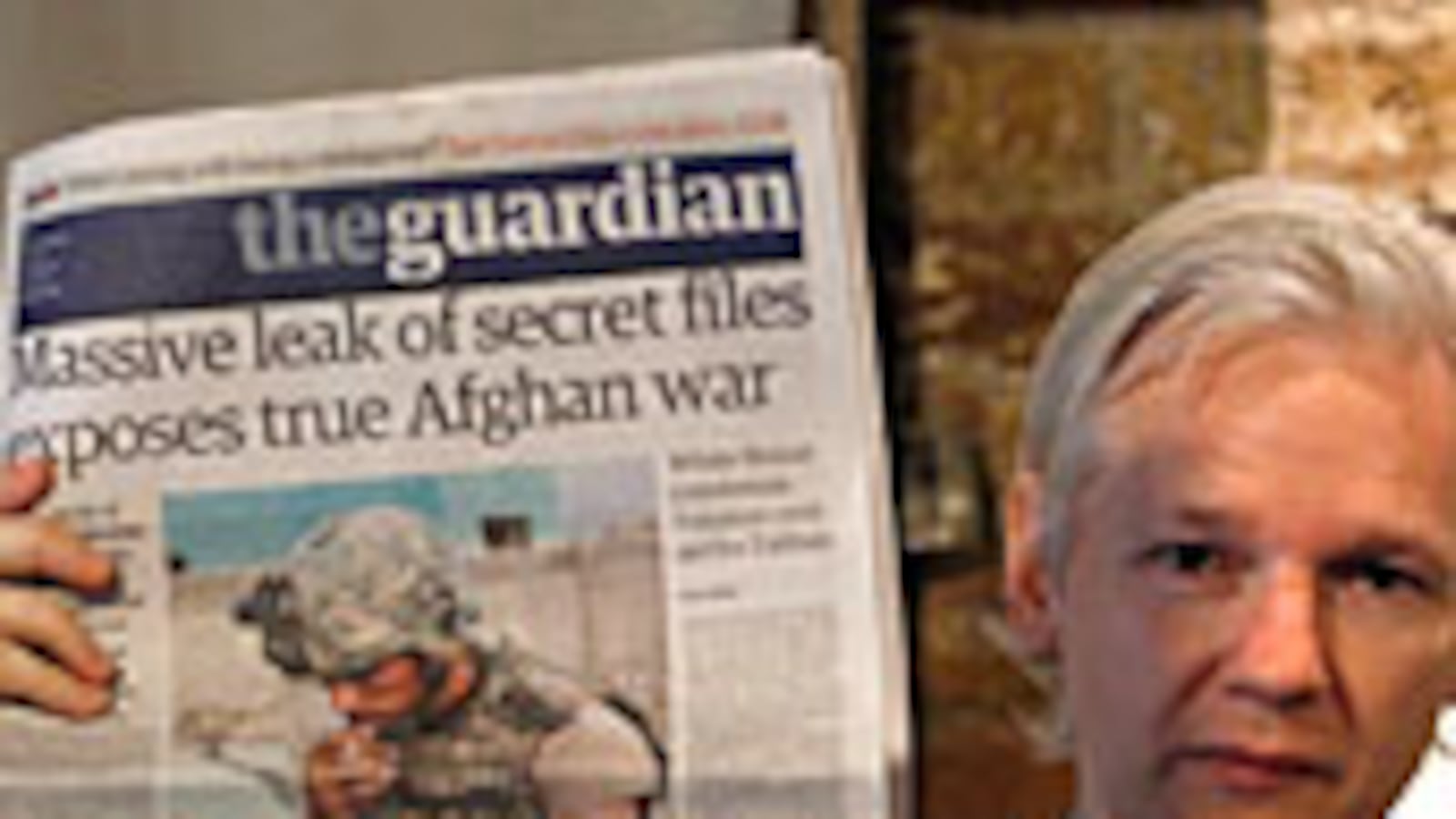
The Obama administration has asked Britain, Germany, Australia, and other allies to consider criminal charges against Julian Assange for his Afghan war leaks. Philip Shenon reports.
The Obama administration is pressing Britain, Germany, Australia, and other allied Western governments to consider opening criminal investigations of WikiLeaks founder Julian Assange and to severely limit his nomadic travels across international borders, American officials say.
Officials tell The Daily Beast that the U.S. effort reflects a growing belief that WikiLeaks and organizations like it threaten grave damage to American national security, as well as a growing suspicion in Washington that Assange has damaged his own standing with foreign governments and organizations that might otherwise be sympathetic to his anti-censorship cause.
“It’s amazing how Assange has overplayed his hand,” a Defense Department official marveled. “Now, he’s alienating the sort of people who you’d normally think would be his biggest supporters.”
American officials confirmed last month that the Justice Department was weighing a range of criminal charges against Assange and others as a result of the massive leaking of classified U.S. military reports from the war in Afghanistan, including potential violations of the Espionage Act by Bradley Manning, the Army intelligence analyst in Iraq accused of providing the documents to WikiLeaks.
Now, the officials say, they want other foreign governments to consider the same sorts of criminal charges.
“It’s not just our troops that are put in jeopardy by this leaking,” said an American diplomatic official who is involved in responding to the aftermath of the release of more than 70,000 Afghanistan war logs—and WikiLeaks’ threat to reveal 15,000 more of the classified reports.
“It’s U.K. troops, it’s German troops, it’s Australian troops—all of the NATO troops and foreign forces working together in Afghanistan,” he said. Their governments, he said, should follow the lead of the Justice Department and “review whether the actions of WikiLeaks could constitute crimes under their own national-security laws.”
Last month, a prominent pro-military group in Australia suggested that Assange may have violated Australian law through the release of the Afghan war logs, given the threat the leak may have posed to the lives of Australian troops serving in the NATO-led force.
The Obama administration was heartened by the call this week by Amnesty International and four other human-rights groups for WikiLeaks to be far more careful in editing classified material from the war in Afghanistan to be sure that its public release does not endanger innocent Afghans who may be identified in the documents.
The initial document dump by WikiLeaks last month is reported to have disclosed the names of hundreds of Afghan civilians who have cooperated with NATO forces; the Taliban has threatened to hunt down the civilians named in the documents, a threat that human-rights organizations say WikiLeaks should take seriously.
• Philip Shenon: WikiLeaks’ Cry for Help • Philip Shenon: The Scramble to Save Informants “It’s amazing how Assange has overplayed his hand,” a Defense Department official marveled. “Now, he’s alienating the sort of people who you’d normally think would be his biggest supporters.”
The joint letter by the five groups, first revealed by The Wall Street Journal, was met by a tart response from Assange, who communicates with the outside world largely through the social-networking Internet tool Twitter.
He appeared to suggest that news organizations and human-rights groups, notably Amnesty International, should help him underwrite his cost of the editing and release of more of the Afghan war documents—but that they were instead refusing to provide assistance.
“Pentagon wants to bankrupt us by refusing to assist review,” he tweeted on Monday, referring to the effort by WikiLeaks to convince the Defense Department to join in reviewing the additional 15,000 documents to remove the names of Afghan civilians and others who might be placed in danger by its release. “Media won’t take responsibility. Amnesty won’t. What to do?”
In a separate posting on Twitter, Assange estimated the cost of the “harm minimization review”—a reference, apparently, to the effort to edit the 15,000 documents to remove informants’ names—at $700,000. It was not clear how he arrived at that figure.
The Australian-born Assange travels constantly and is said to have no real home, living instead in the homes of friends and supporters around the world.
He was reported as recently as last week to be in the U.K., although he has spent significant time this year in Australia, Iceland, and the U.S. He has said he is postponing future travel to the U.S. because of fear that he faces legal sanctions here.
Through diplomatic and military channels, the Obama administration is hoping to convince Britain, Germany, and Australia, among other allied governments that Assange should not be welcome on their shores, either, given the danger that his group poses to their troops stationed in Afghanistan, American officials say.
They say severe limitations on Assange’s travels might serve as a useful warning to his followers that their own freedom is now at risk. A prominent American volunteer for WikiLeaks reported last month that he was subjected to hours of questioning and had his laptop and cellphones seized by American border agents on returning to the U.S. from Europe late last month.
An American military official tells The Daily Beast that Washington may also want to closely review its relations with Iceland in the wake of the release of the Afghan war logs.
Assange and his followers have been successful in pressing the government of Iceland, in the wake of the collapse of the country’s banking system, to reinvent itself as a haven for free speech, creating a potential home for WikiLeaks and other organizations that may violate the laws of the U.S. and other nations through the release of classified documents.
Philip Shenon, a former investigative reporter at The New York Times, is the author of The Commission: The Uncensored History of the 9/11 Investigation.






